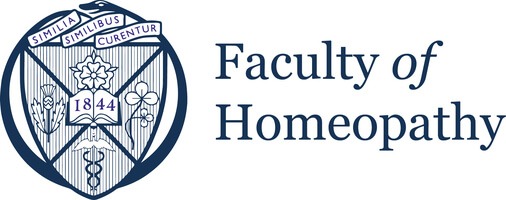Anthroposophic Medicine, emerging from the work of Rudolf Steiner and Ita Wegman, is a holistic approach to health care that integrates spiritual understanding with empirical knowledge of natural science. This system of medicine views the human being as a composite of body, soul, and spirit, and emphasizes the importance of treating all these aspects in unison (Heusser, 1987).
Central to its philosophy, Anthroposophic Medicine combines conventional medical practices with holistic modalities. It incorporates a diverse range of treatments, including medicinal products derived from natural substances, art therapy, eurythmy (a form of movement therapy), rhythmical massage, counseling, psychotherapy, and specialized nursing techniques. This multifaceted approach aims not only to alleviate physical symptoms but also to support the patient's emotional and spiritual well-being (Kienle et al., 2013).
In Anthroposophic Medicine, there's a strong emphasis on the connection between lifestyle, particularly nutrition, and health. A wholesome, lacto-vegetarian diet is often recommended, highlighting the importance of rhythm in feeding and the intricate relationship between food and human temperaments (Azevedo, 2012).
The anthroposophic approach also places significant emphasis on creating a caring and empathetic therapeutic environment. This environment not only addresses the physical aspects of illness but also fosters a shift in perspective, enabling patients to find meaning and purpose even in the face of health challenges (Arman et al., 2008).
In summary, Anthroposophic Medicine is an integrative and comprehensive approach to health that seeks to harmonize the physical, emotional, and spiritual dimensions of human beings, offering a unique perspective to modern healthcare challenges.
Anthroposophic medicine in cancer care, characterized by its holistic approach, integrates with conventional cancer treatments. It emphasizes treating the whole person - physical, emotional, spiritual, and cognitive aspects. This section outlines the fundamental principles of anthroposophic medicine as applied to cancer care.
Anthroposophic medicine is not an alternative but a complementary approach to conventional cancer care. It aims to support the body's natural healing processes while providing symptomatic relief. A study by Kienle et al. (2018) highlights the importance of this integrative approach, emphasizing the combination of conventional and complementary methods for a comprehensive treatment plan.
Central to anthroposophic medicine is the focus on patient empowerment and individualized treatment. Each patient's unique journey with cancer is considered, tailoring treatments to their specific needs and life circumstances. This approach is illustrated in the work of Heusser et al. (2006), which discusses the role of patient autonomy and personalized care in cancer treatment.
A distinctive feature of anthroposophic medicine is the use of therapies that address both the mind and the body. Practices like art therapy, eurythmy (a form of movement therapy), and rhythmical massage are employed to support emotional and physical well-being. Portalupi (2008) provides insights into these therapies, showing their effectiveness in enhancing the quality of life for cancer patients.
Anthroposophic medicine advocates for lifestyle changes that support overall health and well-being. This includes dietary recommendations, often favoring a lactovegetarian diet, and counseling to help patients cope with the emotional and psychological aspects of cancer. The research by Heusser et al. (2006) emphasizes the role of these holistic health practices in improving patient outcomes.
Attention to spiritual and emotional well-being is a key aspect of anthroposophic medicine. It encourages patients to engage in spiritually oriented and active, problem-oriented coping strategies, enhancing their quality of life. A study by Cerny and Heusser (1999) underscores the significance of these coping strategies in improving the emotional and social functioning of cancer patients.
Anthroposophic medicine therefore offers a comprehensive and integrated approach to cancer care. It combines conventional medical treatments with holistic therapies, focusing on the patient's overall well-being and individual journey. This approach not only addresses the physical aspects of the disease but also supports the emotional, spiritual, and psychological needs of the patient.
Anthroposophic medicine offers a unique blend of therapeutic approaches for cancer care, emphasizing holistic treatment and patient empowerment. Here's a detailed look at the various methods employed:
Anthroposophic cancer care provides a multifaceted approach that not only targets the physical aspects of cancer but also profoundly supports the emotional, mental, and spiritual well-being of patients. This integrative method stands as a testament to the philosophy of treating the patient as a whole, rather than just addressing the disease.

Consultant in General Internal Medicine (GMC reg. number: 7541548) and Specialist in Complementary Cancer Care
MBBS, MRCIM (Spain), MSc Homeopathy, MFHom, Master practitioner in Ericksonian Hypnotherapy and Neurolinguistic Programming, MSc in Nutrition
Integrated medicine Doctor and Holistic Medicine Practitioner



